-
 UV11W High-efficiency Intelligent UV Water Sterilizer Cat:Ultraviolet Water Sterilizer
UV11W High-efficiency Intelligent UV Water Sterilizer Cat:Ultraviolet Water SterilizerThe UV11W High-efficiency Intelligent UV Water Sterilizer is an advanced water purification system that offers convenience and reliability. This steri...
See Details -
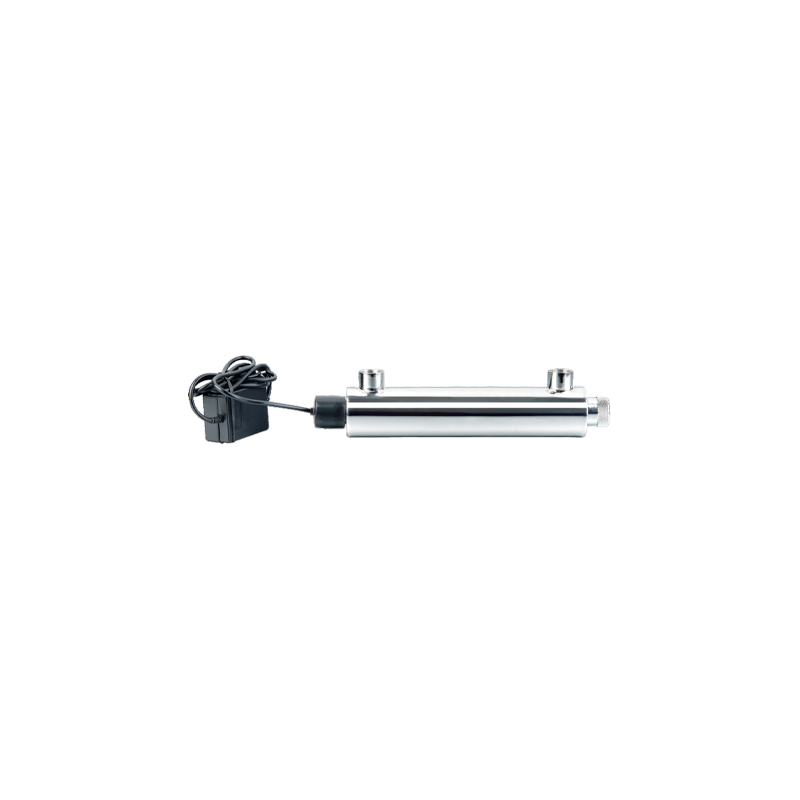 UV16W-A Household Stainless Steel UV Water Sterilizer Cat:Ultraviolet Water Sterilizer
UV16W-A Household Stainless Steel UV Water Sterilizer Cat:Ultraviolet Water SterilizerThe UV16W-A Household Stainless Steel UV Water Sterilizer is an innovative solution for ensuring safe and pure water in your home. Designed with durab...
See Details -
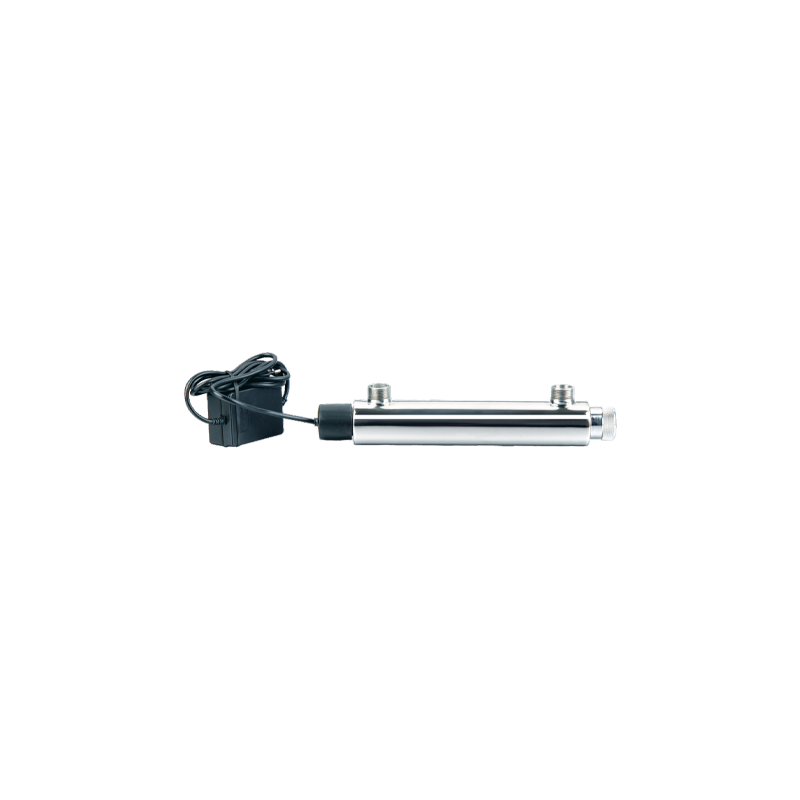 UV16W-B 304 Stainless Steel Water Purifier Ultraviolet Water Sterilizer Cat:Ultraviolet Water Sterilizer
UV16W-B 304 Stainless Steel Water Purifier Ultraviolet Water Sterilizer Cat:Ultraviolet Water SterilizerUV16W-B 304 Stainless Steel Water Purifier Ultraviolet Water Sterilizer is an efficient water treatment equipment based on advanced ultraviolet disinf...
See Details -
 UV25W Stainless Steel Ultrafiltration Pre-Filtration UV Sterilizers For Water Cat:Ultraviolet Water Sterilizer
UV25W Stainless Steel Ultrafiltration Pre-Filtration UV Sterilizers For Water Cat:Ultraviolet Water SterilizerUV25W Stainless Steel Ultrafiltration Pre-Filtration UV Sterilizers For Water uses high-quality stainless steel materials, which have superb corrosion...
See Details -
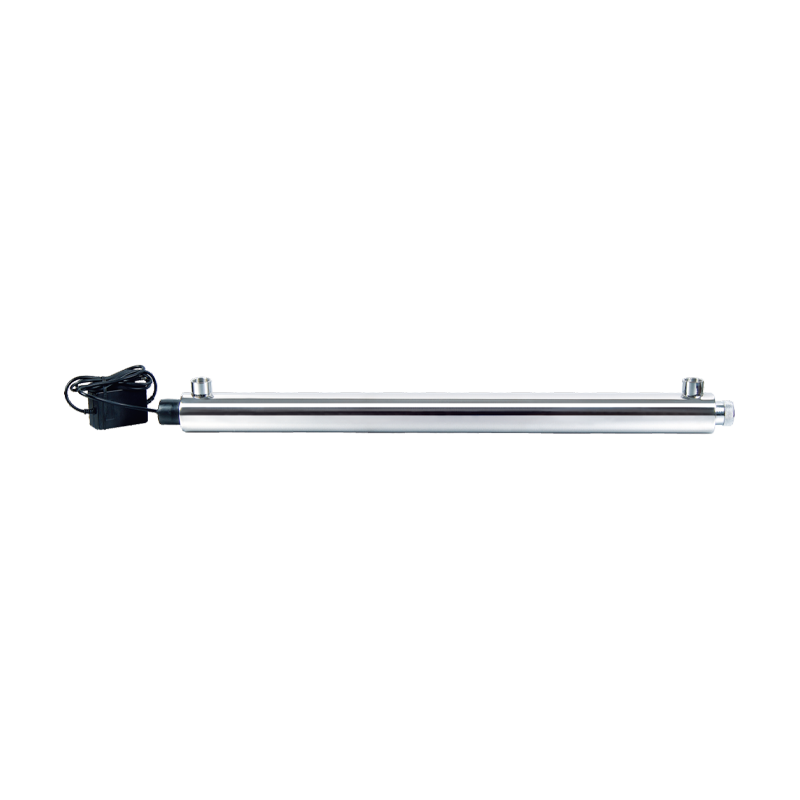 UV30W-55W Automatic Ultraviolet Sterilizer UV Filtration For Drinking Water Cat:Ultraviolet Water Sterilizer
UV30W-55W Automatic Ultraviolet Sterilizer UV Filtration For Drinking Water Cat:Ultraviolet Water SterilizerThe core advantage of UV30W-55W Automatic Ultraviolet Sterilizer UV Filtration For Drinking Water lies in its efficient and rapid disinfection capabil...
See Details -
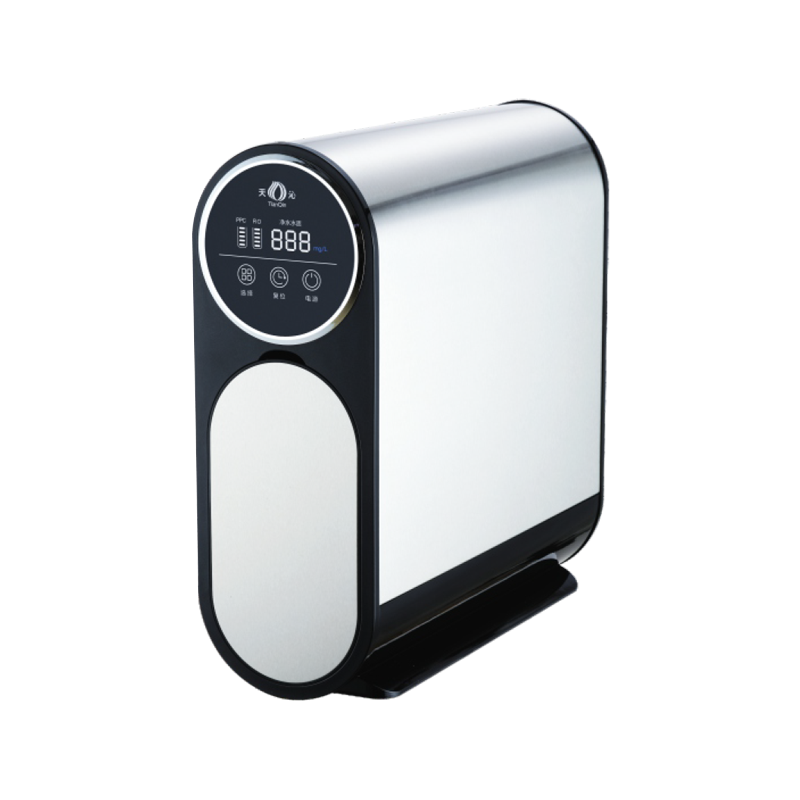 TQ-R03 Stainless Steel Booster Double Water Full Effect RO Water Purifier Cat:Stainless Steel Ro System
TQ-R03 Stainless Steel Booster Double Water Full Effect RO Water Purifier Cat:Stainless Steel Ro SystemTQ-R03 Stainless Steel Booster Double Water Full Effect RO Water Purifier is a household water purification device that combines efficient water purif...
See Details -
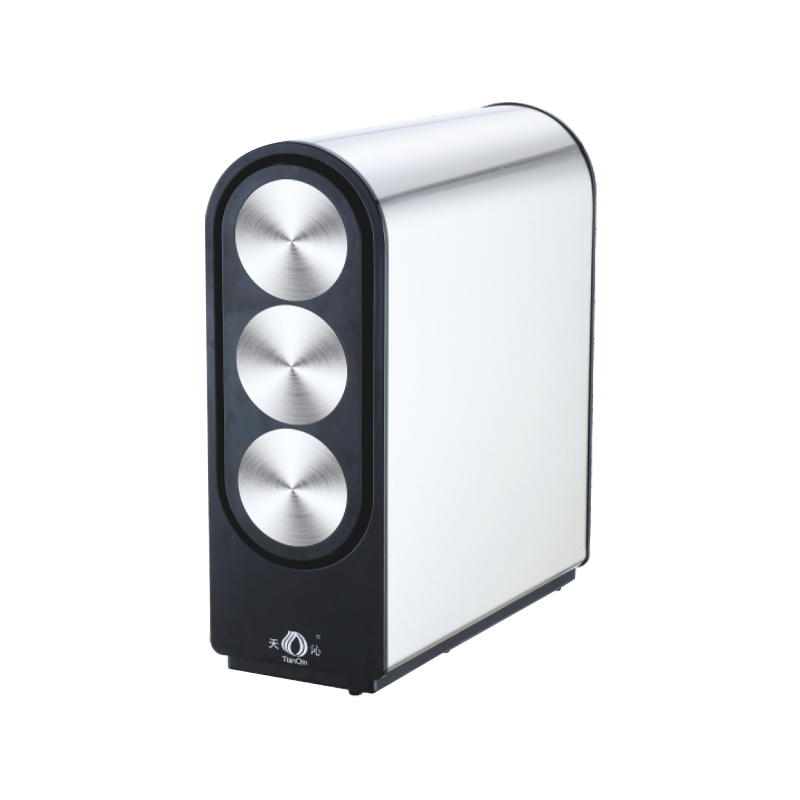 TQ-R05 Multifunctional Water Purification Source RO Water Purifier Cat:Stainless Steel Ro System
TQ-R05 Multifunctional Water Purification Source RO Water Purifier Cat:Stainless Steel Ro SystemThe TQ-R05 Multifunctional Water Purification Source RO Water Purifier is an advanced, versatile water purification solution designed for households a...
See Details -
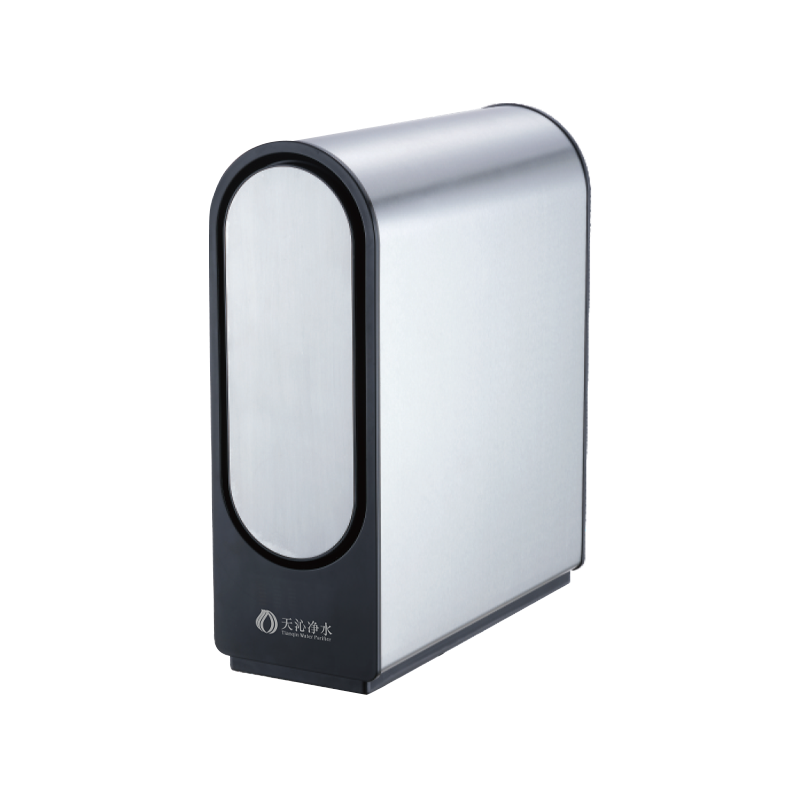 TQ-R06 Stainless Steel Environmentally Friendly RO Water Purifier Cat:Stainless Steel Ro System
TQ-R06 Stainless Steel Environmentally Friendly RO Water Purifier Cat:Stainless Steel Ro SystemThe TQ-R06 Stainless Steel Environmentally Friendly RO Water Purifier combines advanced RO filtration technology, durable stainless steel housing, and...
See Details -
 Stainless Steel Pure Double Water Pipe Water Purifier Cat:Stainless Steel Pipeline Water Purifier
Stainless Steel Pure Double Water Pipe Water Purifier Cat:Stainless Steel Pipeline Water PurifierThe Stainless Steel Pure Double Water Pipe Water Purifier is an advanced water purification system designed to provide dual-mode purified water with e...
See Details -
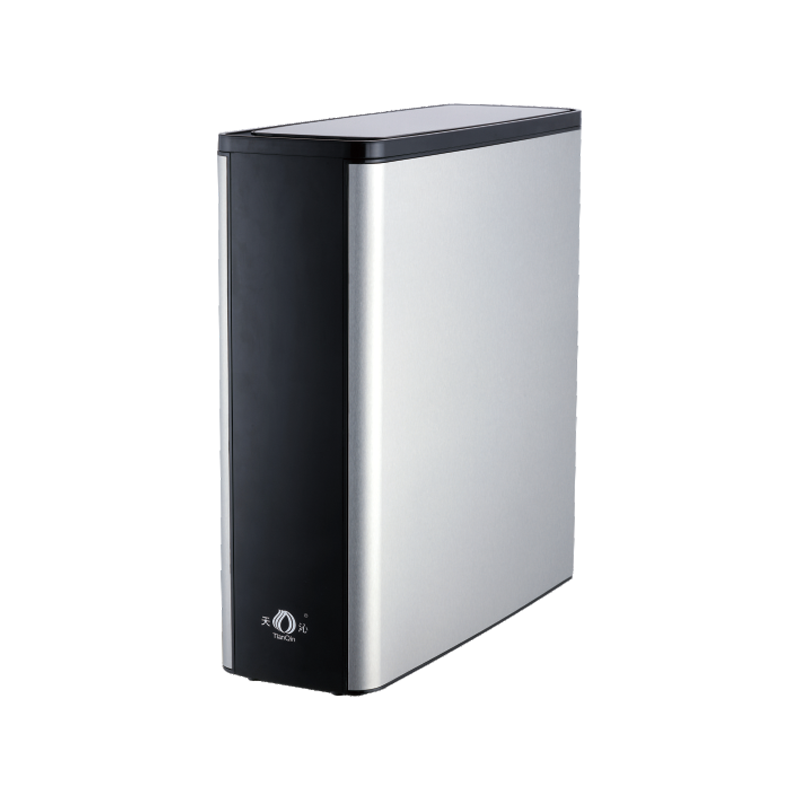 TQ-R08 Stainless Steel High-Flow RO Water Filter Cat:Stainless Steel Ro System
TQ-R08 Stainless Steel High-Flow RO Water Filter Cat:Stainless Steel Ro SystemThe Stainless Steel High-Flow RO Water Filter (TQ-R08) provides a powerful and effective solution for purifying drinking water, combining advanced rev...
See Details
The Important Role of Central Water Filters in Preventing Water Pollution
With increasingly severe water resource issues, water pollution has become a major global environmental concern. The rapid development of industrialization, agriculture, and urbanization has resulted in significant water pollution, directly threatening human health and ecological balance. As one of the effective means to address this problem, central water filters have gradually become a key device for ensuring household water quality. They not only purify water and ensure the safety of daily drinking water, but also play a vital role in preventing water pollution. By removing harmful substances and pathogenic microorganisms from water, central water filters play a crucial "gatekeeper" role in preventing and controlling water pollution.
Content
The Increasingly Serious Current Situation of Water Pollution
Water pollution refers to the presence of excessive levels of harmful substances in water, resulting in deterioration of water quality and failure to meet drinking water standards. With the global population boom and the continued expansion of industrial activity, water pollution is becoming increasingly serious. Large amounts of fertilizers, pesticides, industrial wastewater, and domestic sewage are discharged into natural water bodies, damaging aquatic ecosystems and posing a direct threat to human health.
According to statistics from the World Health Organization (WHO), approximately 8 million people die annually from diseases caused by water pollution. Water pollution, particularly in developing countries and some cities, remains a problem that has not been effectively addressed. Faced with this dire situation, ensuring clean and safe drinking water has become a pressing issue for governments, businesses, and consumers.
| Description | TQ-ZY3500 | TQ-ZY5000 |
| Product Size | 268×364×1000mm | 268×364×1250mm |
| Filter Cartridges | Internal pressure typeφ141×585mm | Internal pressure typeφ141×775mm |
| Fluxes | 2 tons/h | 3tons/h |
| Working Voltage | DC24V | DC24V |
| Flushing | Automatic Forward and Reverse Flush | Automatic Forward and Reverse Flush |
| Filter Life | Water flow meter technology to indicate filter cartridge life | Water flow meter technology to indicate filter cartridge life |
| Framework | Plastic housing, stainless steel cartridge | Plastic housing, stainless steel cartridge |
Working Principle and Advantages of Central Water Filters
A central water filter is a device that purifies water for an entire home or building. Unlike traditional point-to-point water purification systems, a central water filter connects directly to a home's main water pipe, purifying not only drinking water but also other daily water needs such as bathing and kitchen water. Its "whole-home water quality assurance" advantage makes it a valuable option for home water quality management.
How a central water filter works
A central water filter uses multiple filtration technologies to gradually remove various harmful substances from water, ensuring the cleanliness and safety of household water. The basic process includes the following steps:
Coarse Filtration: Water passes through a coarse filter to remove larger impurities and particles, such as silt, sand, and rust.
Activated Carbon Adsorption: Activated carbon has an adsorption capacity and can absorb harmful substances in water, such as chlorine, odors, pesticide residues, and heavy metals.
Reverse Osmosis (RO) Filtration: Reverse osmosis technology removes dissolved substances from water, including microscopic contaminants such as heavy metals, bacteria, and viruses.
Ultraviolet Disinfection: A UV disinfection system effectively kills pathogens such as bacteria and viruses in water, further ensuring water safety.
Advantages of a central water filter
Whole-House Purification: By connecting to the main water line, a central water filter ensures that water quality at all water points in the home meets standards, solving water quality issues for both drinking and domestic water. * **Efficient Removal of Harmful Substances**: Through multiple filtration technologies, central water filters remove heavy metals, bacteria, viruses, and toxic chemicals from water, ensuring water safety.
Cost Savings and Environmental Protection: Using central water filters not only avoids the high cost of bottled water but also reduces plastic waste, contributing positively to environmental protection.
Long-Term Reliability: Unlike traditional point-to-point water purification systems, central water filters, after a single installation, continuously provide clean water to your home, eliminating the need for frequent filter replacements and reducing maintenance costs.
The Role of Central Water Filters in Preventing Water Source Pollution
Preventing and controlling water source pollution begins with controlling it at the source to ensure water quality meets drinking standards. Central water filters, through their powerful purification capabilities, ensure that pollutants do not enter household water sources, playing a core role in preventing water source pollution.
Reducing the Entry of Harmful Substances
With the increasing problem of water pollution, many water sources contain a large number of harmful substances, including heavy metals from industrial emissions, pesticide residues, and chemicals from domestic sewage. These substances enter household water sources through the tap network, posing a health risk to family members. Central water filters effectively remove these harmful substances from water through physical filtration, activated carbon adsorption, and reverse osmosis technology, preventing them from entering household water pipes and daily water systems.
For example, reverse osmosis can filter out heavy metals like lead, mercury, and arsenic, while activated carbon effectively removes harmful substances like chlorine, odors, and pesticide residues. This prevents water contaminants from entering homes at the source, ensuring clean water.
Blocking the Spread of Pathogens
Water pollution isn't just a chemical issue; it's more about the invasion of pathogens like bacteria and viruses. Domestic sewage, agricultural water, and industrial discharge often contain a large number of pathogenic microorganisms. If not effectively disinfected, they can easily cause waterborne diseases such as cholera, diarrhea, and salmonella. Central water filters, equipped with ultraviolet disinfection systems and reverse osmosis technology, can kill bacteria and viruses in water, effectively preventing the spread of pathogens through drinking water and protecting the health of family members.
Reducing the Risk of Pollutant Spread
Source water pollution isn't just a single issue; its impact often spreads far and wide. For example, a problem with a water plant's water purification equipment or a leak in the water supply network can quickly spread contaminants throughout a community. Installing a central water filter effectively blocks pollutants at the entrance of household water pipes, preventing the spread of contamination to individual households and alleviating the burden of public water quality management.
Improving the Sustainability of Water Quality
Source water pollution is dynamic, with water quality fluctuating significantly between seasons and regions. Central water filters can adapt to these varying water quality conditions and provide a continuous and stable supply of clean water. When a water source becomes contaminated, central water filters automatically adjust filtration parameters based on changes in water quality, ensuring consistent water quality in households. This efficient and reliable water quality assurance measure is not only a powerful tool for preventing source water pollution but also improves the sustainability of household water supplies, avoiding short-term fluctuations in water quality.



 English
English 中文简体
中文简体




